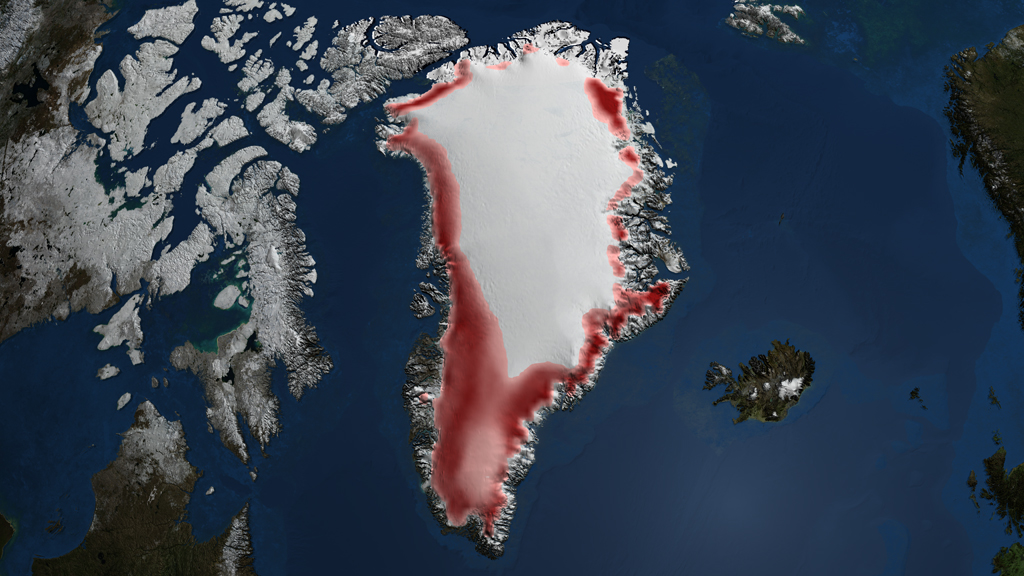Operation IceBridge 2010 Arctic Flight Paths and Change in Elevation Data over Greenland
With the aircraft resources of NASA's Airborne Sciences Program, Operation IceBridge is taking to the sky to ensure a sustained, critical watch over Earth's polar regions. Flight lines (black) are shown for the 2010 campaign over Arctic sea ice and Greenland's land ice. Many flights target outlet glaciers along the coast where NASA's Ice, Cloud and land Elevation Satellite (ICESat) shows significant thinning. Blue and purple colors, respectively, indicate moderate to large thinning. Gray and yellow, respectively, indicate slight to moderate thickening. Since its launch in January 2003, the ICESat elevation satellite has been measuring the change in thickness of ice sheets. This image of Greenland shows the changes in elevation over the Greenland ice sheet between 2003 and 2006.

Flight lines (black) are shown for the 2010 campaign over Arctic sea ice and Greenland's land ice.Many flights target outlet glaciers along the coast where NASA's Ice, Cloud and land Elevation Satellite (ICESat) shows significant thinning. Blue and purple colors, respectively, indicate moderate to large thinning.

Change in Elevation Colortable.
Credits
Please give credit for this item to:
NASA/Goddard Space Flight Center Scientific Visualization Studio
The Next Generation Blue Marble data is courtesy of Reto Stockli (NASA/GSFC).
-
Animator
- Lori Perkins (NASA/GSFC)
-
Visualizer
- Cindy Starr (Global Science and Technology, Inc.)
-
Producer
- Jefferson Beck (UMBC)
-
Scientists
- Jay Zwally (NASA/GSFC)
- Thorsten Markus (NASA/GSFC)
- Lora Koenig (NASA/GSFC)
-
Project support
- John Sonntag (EGG)
-
Writer
- Kathryn Hansen (Wyle Information Systems)
Release date
This page was originally published on Monday, March 21, 2011.
This page was last updated on Wednesday, May 3, 2023 at 1:53 PM EDT.
Missions
This visualization is related to the following missions:Datasets used in this visualization
-
[ICESat: GLAS]
ID: 38 -
Daily L3 6.25 km 89 GHz Brightness Temperature (Tb) [Aqua: AMSR-E]
ID: 236 -
Sea Ice Concentration (Daily L3 12.5km Tb, Sea Ice Concentration, and Snow Depth) [Aqua: AMSR-E]
ID: 237 -
Operation Ice Bridge Flight Paths
ID: 657NASA DC-8 Flight Path
See all pages that use this dataset
Note: While we identify the data sets used in these visualizations, we do not store any further details, nor the data sets themselves on our site.
